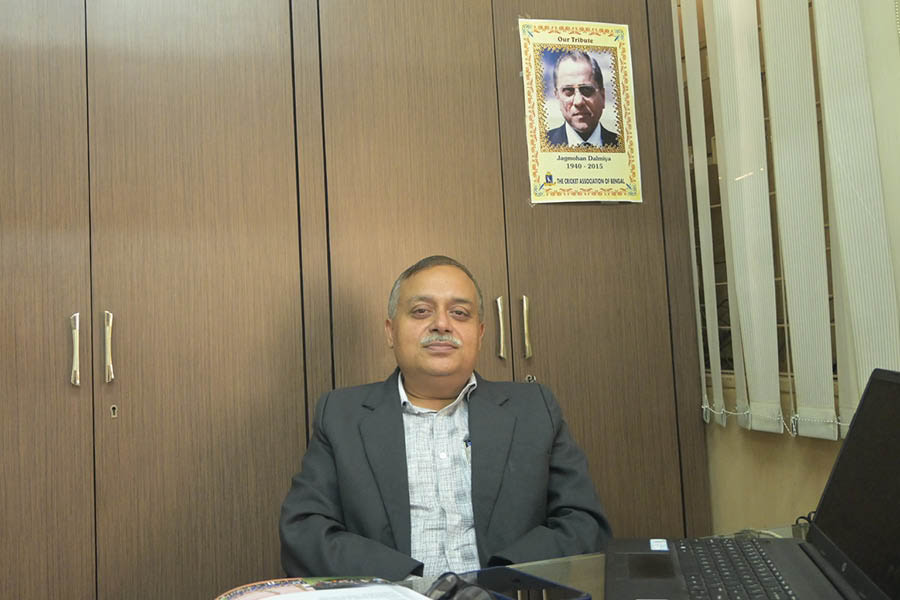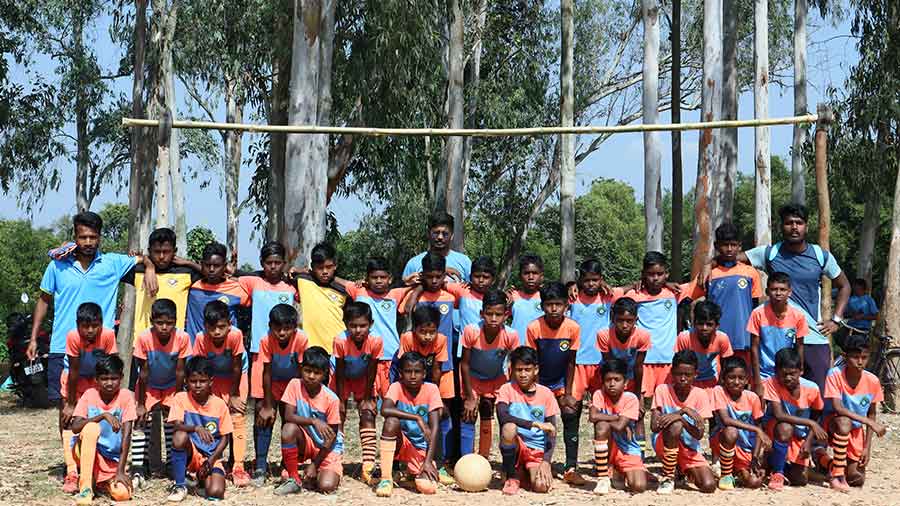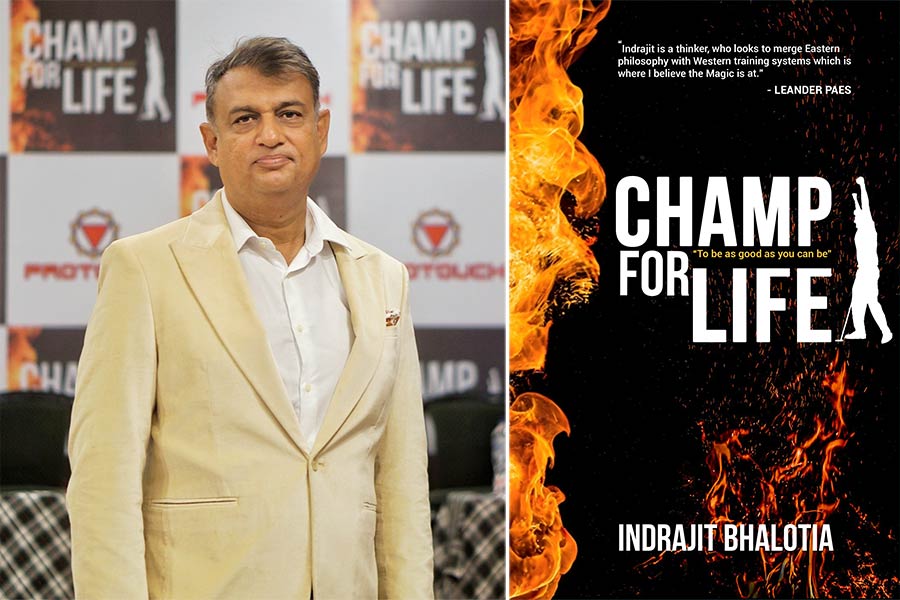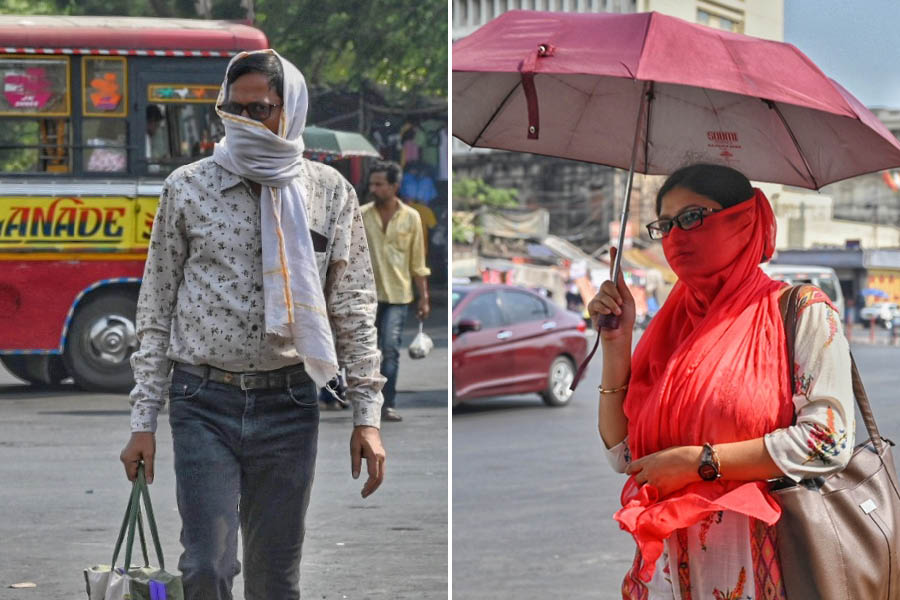Sports as an industry in India was valued at $27 billion in 2020, with projections for that number to cross $100 billion by 2027. In a country with more than 800 million people below the age of 35, the beneficiaries of the burgeoning business of sports are not athletes alone. Rather, it is an entire ecosystem — from sports administration to sports broadcasting, from sports nutrition to sports marketing, to name a few — that is thriving as sports becomes increasingly lucrative as a career. Naturally, this has spawned a series of academic programmes on sports across India, with sports management courses gaining in popularity.
A little more than two decades ago, Madhab Milan Ghosh, now 53, had anticipated the scenario playing out today. A professional accountant but a sportsman by passion (including being an umpire for CAB for 21 years), Ghosh had realised the importance of a professional degree in sports. His efforts, along with the visionary support of Ashok K. Dutta, the then director of the Indian Institute of Social Welfare and Business Management (IISWBM), led the IISWBM in Kolkata’s College Square offering India’s first postgraduate diploma in sports management in 2003. At the time, Ghosh had with him Subrata Datta, ex-PR manager of Tata Steel, and Pradip Dasgupta, former secretary general of The Bengal Chamber of Commerce & Industry (BCC&I) to run the show. Initially, Ghosh had his doubters, but today his brainchild has produced students that have worked at the ICC, BCCI, AIFF, the Sports Authority of India (SAI) as well as a slew of private and governmental organisations involved in the sports industry.
‘The course doesn’t look at your background, it only cares about your passion for sports’
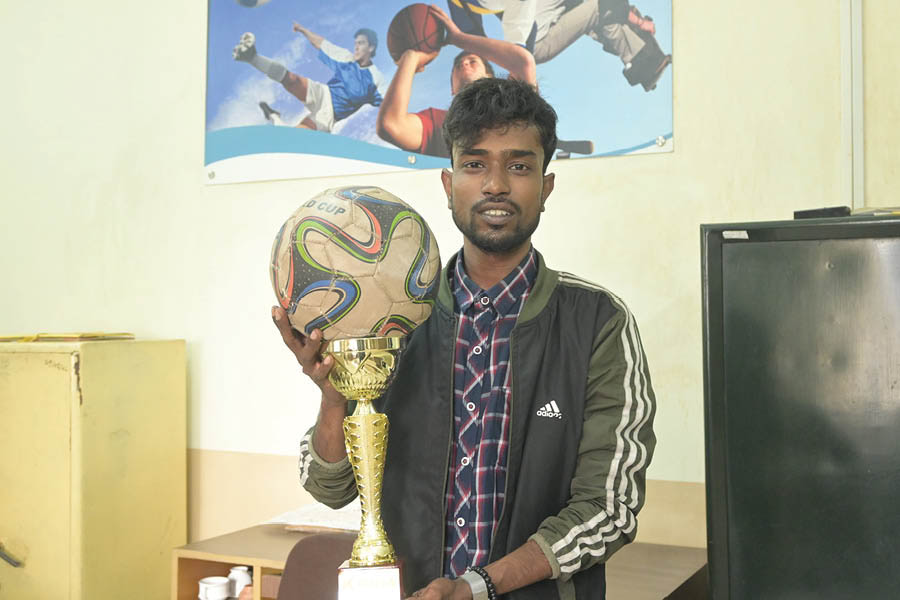
Francis Rohan Mondal, a graduate of the sports management course, from the batch of 2023
Amit Pramanik“When I first started taking sports management classes at the IISWBM, I didn’t know what I’d teach… I was learning as I was teaching,” admits Ghosh, who was the first person in the history of the University of Calcutta to complete his PhD with a specialisation in sports management. Between 2003 and 2009, the PG diploma in sports management was under the aegis of the IISWBM before getting an affiliation from the University of Calcutta in 2010-11. On August 8, 2005, the IISWBM’s sports management department was able to bring Ratan Tata on campus to rechristen the department as the Naval Tata Centre for Excellence in Sports Management. The occasion also saw Tata inaugurate the bust of his father, Naval H. Tata, a doyen among Indian industrialists and a former president of the Indian Hockey Federation.
At present, the one-year PG diploma in sports management, which is divided into two semesters, has about 30 students enrolling for it every session. While most of the applicants are boys, the number of female students is slowly but surely on the rise. With a course fee of Rs 2.70 lakh (along with an application fee of Rs 800), the sports management degree is an affordable option not just for the youth of Kolkata, but also for those from rural Bengal as well as other cities from India.
Francis Rohan Mondal, 26, passed out of the IISWBM’s sports management course in 2023 and secured his placement right away. A huge fan of Real Madrid and Mohun Bagan, the Park Circus boy is working in Bengaluru with Qua Nutrition, a pan-India company, in the sports marketing department. For him, the biggest strength of the course is that “it doesn’t look at your background, it only cares about your passion for sports”.
“I come from Raghunathganj in Murshidabad. Ever since I was a kid, I wanted to be a cricketer, but things didn’t work out. I wanted to be involved in sports but had no idea how. That’s when one of my relatives told me about the programme at the IISWBM. When I arrived on campus, I wasn’t proficient in English, but the professors encouraged me to get better and never stopped supporting me. After graduating from the IISWBM in 2019, I got a job opportunity with the Reliance Foundation Youth Sports (RFYS) and have since been a part of several competitions such as the IPL, WPL, ISL and the Durand Cup in the capacity of a freelance sports management professional,” narrates Rahul Sheikh, 28.
From sports psychology to sports finance to sports marketing to sports law and more
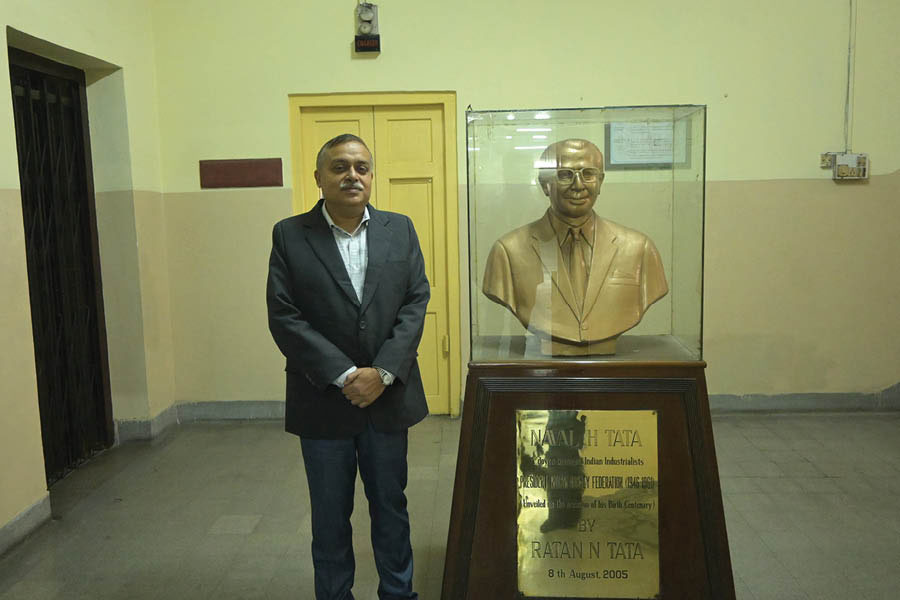
Ghosh with a bust of Naval Tata, which was inaugurated by Ratan Tata in August 2005
Amit Pramanik“In the first few years of the course, we got a lot of students from outside Kolkata and Bengal. The numbers from other cities have gone down since the pandemic, but we’re starting to see interest from abroad, including neighbouring countries like Bangladesh and Myanmar,” says Ghosh, whose poise with words resembles that of a seasoned Test cricketer with the bat. As per the current syllabi, the sports management degree has a “healthy balance of theory and practical modules”, with adequate attention given to subjects such as sports psychology, sports finance, sports journalism, sports law, sports marketing, and lifestyle and wellness management, among others. Ghosh, who is the head of the department, is one of two full-time professors teaching the course, alongside course coordinator Ankan Banerjee. The rest of the faculty, which comprises athletes, sports broadcasters and other individuals with professional experience in sports, contributes as part-time or guest lecturers.
“During the initial days of this course, some sports bodies thought that our students were planning to replace their administrators. But that wasn’t and isn’t our intention. Our idea is to provide human resources armed with a multi-disciplined understanding of sports, which equips our students with the systems and structures of sports and allows them to chart their course in whichever niche of sports they want to proceed with,” explains Ghosh. He believes that once the basics of sports management are in place, his graduates can adapt to a whole range of opportunities and challenges. To emphasise his point, Ghosh adds: “Take, for instance, event management, which has become big in sports due to all the franchise-based leagues taking off in India. Many of my students are involved in them, which means that they’re going all guns blazing for six months of the year, making good money and then vacationing for three months before zoning back into work.”
‘Jagmohan Dalmiya was a sports management guru with outstanding diplomatic ability’
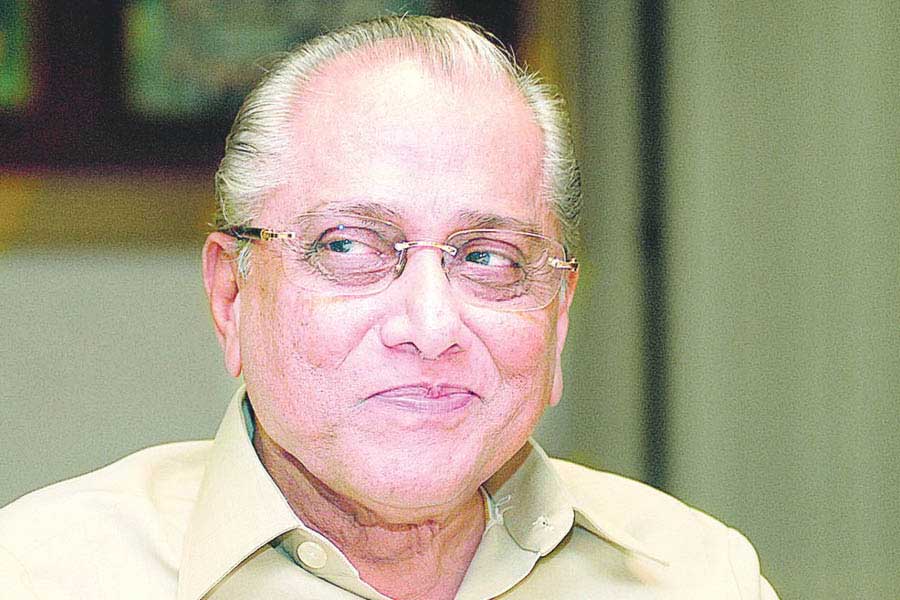
According to Ghosh, Jagmohan Dalmiya was a ‘gamechanger’ when it came to sports administration in India
TT ArchivesLike a veteran umpire anticipating the next variation from the bowler, Ghosh senses the next question about the course and delivers a clinical answer: “Why is this a one-year course and not a two-year one? Why not make it a master’s degree? That’s because I don’t want students to sit for exams like CAT or require a certain score in their bachelor’s degrees to be able to take up this course. I’m not looking for academically gifted people. I’m looking for those who have a genuine interest in sports and have the passion that can drive them onwards and upwards.”
Back in the late ’90s, when Ghosh was still ideating a potential sports management course by closely following the development of such programmes in the UK and Australia, resistance was high back home. Educationists had little to no clue of the growth that was to come in sports and very few in India seemed to understand what sports management meant. “It’s simple — sports management is about applying the principles of management to the world of sports,” says Ghosh, as if still persuading his naysayers from back in the day. Naysayers who would sometimes ask him questions like: “How big a field do you need for this course of yours?”
One man who not only understood sports management but also practised it without a formal training was Jagmohan Dalmiya, former president of the ICC, BCCI and the CAB. “He used to like me a lot and always encouraged me in my mission to further sports management. He himself was a sports management guru who had vision, managerial acumen and outstanding diplomatic ability. He was a gamechanger,” says Ghosh of Dalmiya, whom he had impressed early on in their association-turned-friendship by revamping the Pankaj Gupta Sports Library.
‘It isn’t enough to have professional courses… associations and organisations need to be professionalised, too’
Ghosh is optimistic that the IISWBM’s sports management course can pave the way for more Dalmiyas, people who can change sports without being on the field. As for the immediate goals for his programme, Ghosh is in conversation with the University Grants Commission (UGC) to help bring more full-time faculty on-board (through exams like NET), which would also allow him to expand the class size.
At the same time, Ghosh feels that for more sports managers to come out of Kolkata and Bengal, sports in the region has to receive more governmental and institutional support. “Places like Gujarat, Maharashtra, Tamil Nadu, Karnataka, and especially Odisha, have tournaments going on all the time, including in all the Olympic sports. We need to replicate that here,” says Ghosh, before delivering his final verdict: “After all, for sports to develop, it isn’t enough to have professional courses. Associations and organisations need to be professionalised, too.”


